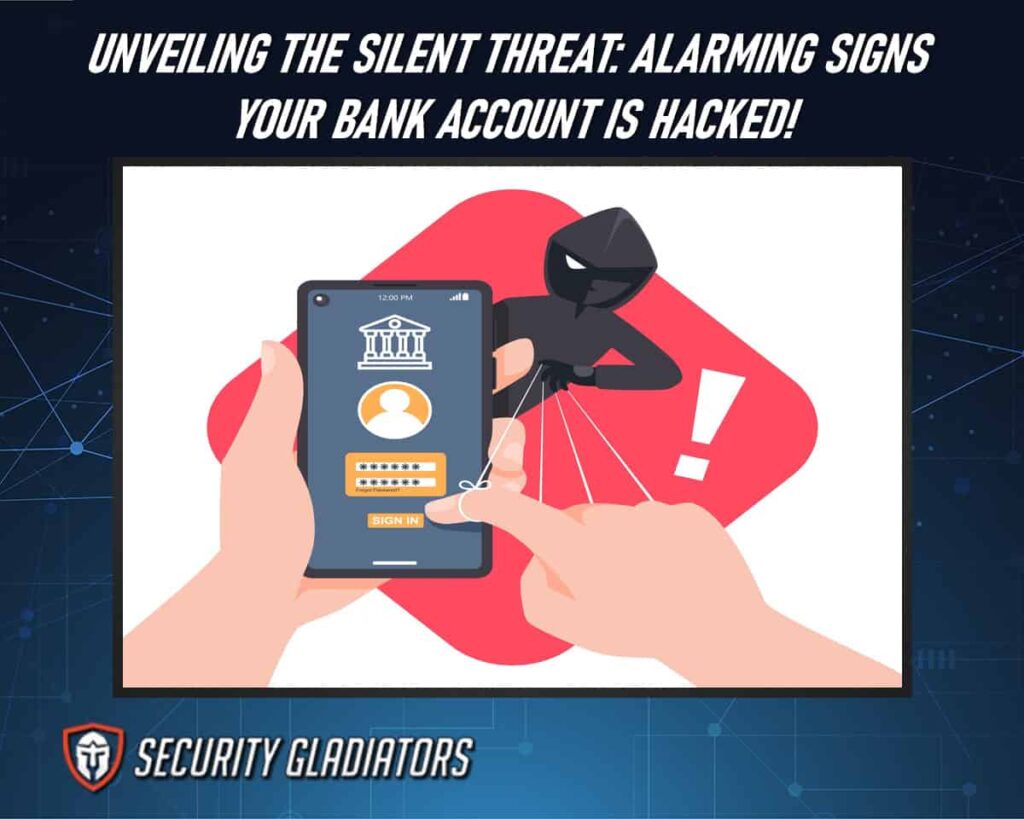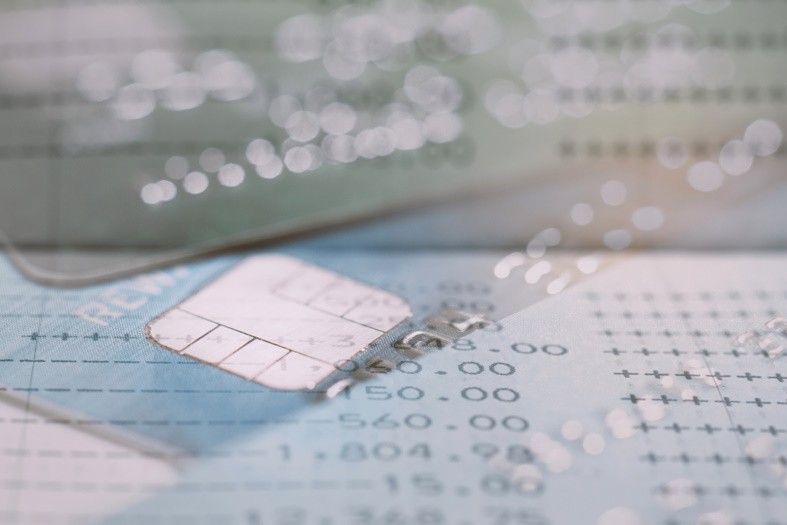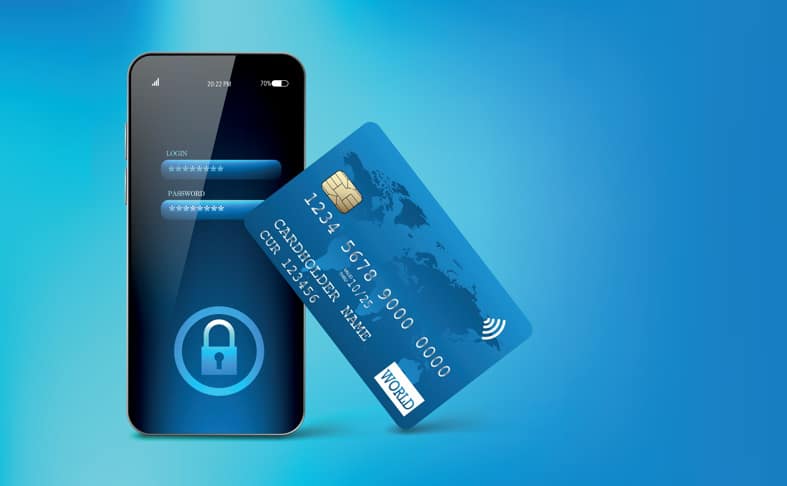
Recognizing the signs of a hacked bank account is vital in combating this silent threat. Missing or delayed statements and unfamiliar transactions are clear red flags that demand immediate attention. Additionally, difficulty logging into other online accounts and unexpected changes in account information can indicate that someone unauthorized has gained control over your finances. Furthermore, unrecognized charges on credit cards linked to your bank account provide further evidence of a potential security breach.
Table of Contents
Reasons Why Banks Get Hacked
There are several factors that contribute to the vulnerability of banks and make them susceptible to hacking attempts. One major reason is the increasing prevalence of identity theft. Hackers target banks as a means to gain access to personal information, such as social security numbers and financial details, which they can use for fraudulent activities. This enables them to not only compromise individual bank accounts but also engage in broader schemes of identity theft.
Another factor that contributes to the hacking of bank accounts is stolen funds. Cybercriminals exploit vulnerabilities in banking systems to gain unauthorized access and siphon off money from individual accounts. They may employ various techniques, such as phishing emails or malware-infected websites, to trick individuals into revealing their account credentials or installing malicious software on their devices. Once hackers have obtained this information, they can transfer funds out of the victim’s account without their knowledge or consent.
Furthermore, data breaches pose a significant threat to banks and increase the likelihood of bank account hacking. When a data breach occurs, sensitive customer information stored by financial institutions becomes vulnerable. This includes personally identifiable information (PII), login credentials, and even credit card details. Hackers capitalize on these breaches by using stolen data for unauthorized purchases or selling it on the dark web. When traveling anywhere, it’s essential to ensure you can access bank account safely while overseas. Utilizing secure online banking services and notifying your bank about your travel plans can help you manage your finances with peace of mind.
Ways Used to Hack a Bank Account
Various techniques are employed by hackers to gain unauthorized access to individuals’ bank accounts. These methods have become increasingly sophisticated with the advancement of technology and the widespread use of online banking. Hackers often target unsuspecting victims through various means such as:
Phishing Emails
Hackers commonly send out fraudulent emails that appear to be from legitimate financial institutions. These emails often contain links or attachments that prompt the recipient to enter their login credentials or personal information. Unsuspecting victims may unknowingly provide their sensitive data, allowing hackers to gain access to their bank accounts.
Malware
Another common method used by hackers is the distribution of malicious software, commonly known as malware. This can be in the form of viruses, worms, or Trojans that are designed to infiltrate a victim’s computer or mobile device. Once installed, these programs can capture keystrokes or steal credit card data entered during online transactions.
Signs Your Bank Account Is Hacked
Below are some of the signs that your bank has been hacked:
1. Missing or Delayed Statements
A potential indication of unauthorized access to personal financial accounts is the absence or delayed arrival of bank statements. Missing or delayed statements can be a cause for concern as they may suggest that someone has gained unauthorized access to the account and is attempting to cover their tracks.
When individuals do not receive their regular bank statements, it becomes difficult for them to track their account activity and monitor any suspicious transactions. Moreover, delayed statements may provide hackers with more time to exploit compromised accounts without being detected. To further understand the significance of missing or delayed statements, it is important to consider three key aspects:
Bank Statements
Bank statements contain crucial information about an individual’s account activity, such as deposits, withdrawals, and transfers. They serve as a record of financial transactions and help individuals keep track of their funds. The absence of these statements can make it challenging for individuals to identify any fraudulent activities or discrepancies in their accounts.
Account Activity
Regularly receiving bank statements allows individuals to review their recent transactions and identify any unfamiliar charges or suspicious activities promptly. Without these records, victims might not notice unauthorized access until significant damage has already been done.
Account Information
Bank statements often include personal details like name, address, and contact information printed on them. If criminals gain hold of these documents due to missing or delayed delivery, they can use this information for identity theft or other fraudulent purposes.
It is crucial for individuals to promptly contact their banks if they suspect any issues with missing or delayed bank statements as it could indicate a compromise in the security of their accounts. By reporting such incidents immediately, necessary measures can be taken by both the individual and the bank to safeguard against further unauthorized access and potential financial loss.
2. Unfamiliar or Suspicious Transactions
An indicator of potential unauthorized access to personal financial accounts is the occurrence of unfamiliar or suspicious transactions. These transactions may appear on a credit card statement or bank account record and can range from small, seemingly insignificant purchases to large, extravagant ones. It is crucial for individuals to carefully review their statements regularly and identify any transactions that they do not recognize or recall making. Unfamiliar transactions could be a sign that someone has gained unauthorized access to an individual’s account information. This could occur through various means, such as hacking into online banking systems or stealing physical cards.

Hackers gain access to personal financial accounts with the intention of using them for fraudulent activities, often making purchases without the account holder’s knowledge or consent. Therefore, it is essential for individuals to promptly report any unfamiliar transactions to their financial institution in order to mitigate potential damage and prevent further unauthorized activity.
3. Increased Spam or Phishing Emails
Cybercriminals often use email as a tool to gain access to personal information and financial details. When hackers gain unauthorized access to bank accounts, they may also obtain email addresses associated with those accounts. Subsequently, they can bombard account holders with unsolicited emails containing links or attachments designed to trick them into revealing sensitive information such as passwords or credit card numbers. These emails are often cleverly disguised as legitimate messages from the user’s bank or credit card company, making them even more deceptive. To protect yourself from falling victim to these scams, it is important to stay vigilant and skeptical when receiving any emails related to your bank accounts. Be cautious of any unexpected requests for personal information, login credentials, or financial details in an email. In addition, consider investing in an identity theft protection service that can help monitor your online activities and alert you if any suspicious activity occurs on your accounts.
4. Inability to Access Online Banking
When individuals are unable to access their online banking accounts, it can be indicative of a potential security breach or unauthorized access. This inability to access online banking is one of the alarming signs that their bank account may have been hacked. When individuals find themselves unable to log into their online banking accounts despite entering the correct login credentials, it can be a cause for concern. It could indicate that hackers have gained access to sensitive information and changed login details or implemented other security measures that prevent legitimate users from accessing their accounts. This form of cyber attack not only compromises personal finances but also raises questions about the overall security measures taken by financial institutions in safeguarding customer data.
5. Unusual Account Activity Alerts
Financial institutions have implemented various security measures to protect their customers’ accounts, and one of these measures is sending notifications when there are suspicious activities detected. These alerts are designed to inform account holders about any unauthorized transactions or unusual behavior on their accounts. When you receive an unusual account activity alert, it is crucial not to ignore it. Take immediate action by carefully reviewing your account statement for any unfamiliar transactions or changes in balances. If you notice any discrepancies or unauthorized activities, contact your financial institution right away. They will guide you on how to report fraud and take steps to secure your account. Unusual account activity alerts serve as warning signs that should never be ignored. They provide early indications of potential fraudulent activities on your bank account and give you the opportunity to take swift action before significant damage occurs.
6. Strange Phone Calls or Text Messages
One of the indicators that your bank account may have been compromised is receiving unusual phone calls or text messages. These messages can come from unknown numbers or appear to be sent by your bank or financial institution. They often contain urgent requests for personal information such as your account number, Social Security number, or other sensitive details. The purpose of these fraudulent communications is to trick you into revealing confidential information that can be used by hackers to gain unauthorized access to your bank account. If you receive strange phone calls or text messages requesting personal information related to your bank account, it is important not to respond and instead report them immediately. You should contact your bank’s fraud department and inform them about the suspicious activity. They will guide you on the necessary steps to take in order to protect yourself and secure your finances.
Note:
It is also advisable to monitor your account closely for any unauthorized transactions or changes and consider filing an identity theft report with the relevant authorities if you suspect foul play. Remember that legitimate financial institutions will never ask for sensitive information through unsolicited phone calls or text messages, so always exercise caution when dealing with such communication. Strange phone calls or text messages are a potential sign that your bank account may have been hacked.7. Unexplained Withdrawals or Transfers
Another indication of a compromised bank account is the occurrence of unexplained withdrawals or transfers. If you notice that money has been taken out of your account without your knowledge or authorization, it is highly likely that your bank account has been hacked. These unexplained withdrawals can range from small amounts to large sums, depending on the intentions of the hacker. It is important to act fast when you discover these unauthorized transactions in order to minimize any further damage. To evoke emotion in the audience and emphasize the seriousness of this issue, here are three alarming scenarios that may arise due to unexplained withdrawals or transfers:
Lost Money
Unexplained withdrawals can lead to significant financial losses for individuals. The money taken from their accounts may be used for personal gain by hackers, leaving victims struggling to recover their funds and restore their financial stability.
Strange Purchases
Hackers often use stolen bank account information to make fraudulent purchases online or in stores. Victims may find themselves facing unexpected charges for items they never bought, ranging from electronics and luxury goods to subscriptions and services they never signed up for.
Act Fast
Time is of the essence when dealing with hacked bank accounts. The longer it takes for victims to realize their accounts have been compromised and report it, the more money can be siphoned off by hackers. Acting swiftly allows individuals to limit potential losses and increase their chances of recovering any stolen funds.
8. Sudden Drop in Account Balance
A sudden decrease in the account balance can indicate a potential compromise of financial security. When individuals notice a significant drop in their account balance without any legitimate reason, it is crucial to take immediate action to protect their financial accounts. One possible explanation for this sudden decrease could be unauthorized transactions or fraudulent activities that have taken place. Hackers may gain access to online accounts through various means, such as phishing scams or malware attacks, allowing them to make unauthorized withdrawals or transfers from the victim’s bank account.
This is important:
Individuals should promptly contact their bank and inform them about the situation. It is recommended to speak with the bank’s fraud department so they can investigate the matter further. Additionally, individuals should consider enrolling in a credit monitoring service that can alert them of any suspicious activity on their accounts. This proactive approach allows individuals to stay informed and take necessary steps immediately if any unauthorized transactions occur.9. Difficulty Logging Into Other Online Bank Accounts
Another sign that your bank account may have been hacked is difficulty logging into other online accounts. This can be a frustrating and puzzling experience for individuals who are otherwise accustomed to seamless access to their various digital platforms. When faced with this issue, it is essential to consider the possibility of malicious hackers gaining unauthorized access to your account credentials or login information.
One possible reason why you may encounter difficulty logging into other online accounts after your bank account has been hacked is that the same login credentials are often used across multiple platforms. Malicious hackers who successfully breach your bank’s security measures may attempt to exploit this common practice by using the obtained information to gain entry into other online accounts associated with your email address or username. These hackers could potentially compromise sensitive personal data stored within these accounts, such as social media profiles, email correspondence, or even e-commerce platforms where payment information is saved.
10. Unauthorized Login Attempts
Unauthorized login attempts can signal potential security breaches and unauthorized access to your online accounts. When someone tries to gain access to your account without your permission, it could indicate that your bank account has been hacked. These unauthorized login attempts may occur through various methods such as brute force attacks or phishing schemes. In a brute force attack, an attacker systematically guesses different combinations of usernames and passwords until they find the correct one. On the other hand, phishing schemes involve tricking users into revealing their sensitive information, including their account passwords.
Regardless of the method used, unauthorized login attempts should be taken seriously as they can lead to identity theft and financial loss. To protect yourself from unauthorized login attempts and potential hacking of your bank account, it is crucial to implement strong security measures. One effective method is by utilizing two-factor authentication (2FA). This adds an extra layer of security by requiring users to provide additional verification in addition to their username and password when logging into their accounts. Typically, this involves receiving a unique code via email or text message that needs to be entered during the login process. By implementing 2FA, even if an attacker manages to obtain your username and password, they would still need access to your personal devices or email accounts in order to successfully log in.
11. Unexpected Changes in Account Information
Unexpected changes in account information can indicate potential security risks and should be closely monitored to protect against unauthorized access and financial loss. When individuals notice unexpected alterations to their bank account details, such as changes in contact information, email addresses, or linked phone numbers, it could be a warning sign of hacking attempts. Hackers may seek to gain access to personal accounts through these alterations in order to carry out fraudulent activities. By changing the contact information associated with an account, hackers can effectively bypass any notifications or alerts that would typically be sent to the account holder regarding suspicious transactions or login attempts.
Moreover, unexpected changes in account information can also signify that a user’s credentials have been compromised and sold on the dark web. Cybercriminals frequently sell stolen personal data on underground markets, enabling other malicious actors to exploit this information for various purposes including identity theft and fraud. Once hackers obtain access to banking details, they may attempt unauthorized transactions or use the compromised information to gain access to credit card statements and other online accounts connected with the victim.
12. Unrecognized Charges on Credit Cards Linked to the Account
Unidentified charges appearing on credit card statements associated with the account may indicate potential security breaches and should be thoroughly investigated to mitigate financial risks. When individuals notice unrecognized charges on their credit cards linked to their bank accounts, it is essential to take immediate action. These unrecognized charges could be a result of a hacked bank account or compromised credit card number. It is crucial for individuals to carefully review their credit card statements regularly and report any suspicious activity promptly. Unrecognized charges can range from small, seemingly insignificant amounts to larger purchases that could significantly impact one’s finances.
By closely monitoring these statements, individuals can identify any irregularities and take appropriate measures to safeguard their financial assets. Additionally, contacting the bank or credit card company as soon as possible allows them to freeze the affected account, investigate the fraudulent activity, and provide necessary assistance in resolving the issue effectively.
How Can I Prevent My Bank Account From Being Hacked?
Protecting your online account from being hacked requires a combination of cybersecurity practices, vigilance, and proactive measures. Here are some steps you can take to prevent your bank account from being compromised:
Use Strong, Unique Passwords
Create strong passwords that combine uppercase and lowercase letters, numbers, and special characters. Avoid using easily guessable information such as birthdays or names. Use a different password for each of your online accounts, including your bank account.

Enable Two-Factor Authentication (2FA)
Whenever possible, enable two-factor authentication for your bank account. This adds an extra layer of security by requiring you to provide a second form of verification (usually a code sent to your phone or email) in addition to your password.
Regularly Update Passwords
Change your passwords periodically to reduce the risk of unauthorized access. Make it a habit to update your passwords at least every few months.
Secure Devices and Networks
Ensure that the devices you use to access your bank account are secure. Keep your operating system, apps, and antivirus software up to date. Avoid using public Wi-Fi networks for sensitive transactions.
Beware of Phishing Scams
Be cautious of emails, messages, or phone calls requesting personal information or account details. Always verify the authenticity of such requests by contacting your bank directly through official channels.
Keep Software Updated
Regularly update your operating system, browsers, and any security software you use. Cybercriminals often target vulnerabilities in outdated software.
Monitor Account Activity
Regularly review your bank account statements and transaction history. If you notice any unauthorized or suspicious transactions, report them to your bank immediately.
Use Secure Websites
Only access your bank account through the official website or mobile app. Check for “https://” and a padlock symbol in the browser’s address bar to ensure a secure connection.
Avoid Public Computers and Devices
Refrain from accessing your bank account from public computers or shared devices, as they might have malware or keyloggers that can capture your sensitive information.
Secure Your Email
Since your email account is often used for password recovery and communication with your bank, make sure it’s well-protected with a strong password and 2FA.
What To Do When Your Bank Account Is Hacked
If you suspect that your bank account has been hacked or compromised, it’s important to take immediate action to minimize potential damage and protect your finances. Here’s what you should do:
Contact Your Bank
Get in touch with your bank’s customer service or fraud department as soon as possible. Use the official contact information from the bank’s website or a statement to ensure you’re speaking to the correct representatives.
Freeze or Lock Your Account
Ask the bank to freeze or lock your account to prevent any further unauthorized transactions. This step will help limit the hacker’s access to your funds.
Change Passwords and Enable 2FA
If you can still access your account, change your passwords immediately. Enable two-factor authentication (2FA) if it’s not already active. This adds an extra layer of security to your account.
Review Account Activity
Carefully review your account statements and transaction history to identify any unauthorized or suspicious transactions. Note down any details that could be useful for the bank’s investigation.
Report Unauthorized Transactions
If you find any unauthorized transactions, report them to your bank. They will initiate an investigation and guide you on the necessary steps.
Frequently Asked Questions
Can I Recover the Funds if My Bank Account Is Hacked?
While the experience of having your bank account hacked can be distressing, there is a possibility of recovering your funds if you respond promptly. Financial institutions typically assume liability for charges resulting from cybersecurity incidents, but it’s essential to remain prepared nonetheless. Recovering the funds in the event of a hacked bank account can be a complex and challenging process. Financial institutions typically have fraud detection systems in place to identify unauthorized transactions, and they often offer protection programs that reimburse customers for fraudulent activity. However, the success of recovering funds depends on various factors such as how quickly the account holder reports the incident, cooperation with law enforcement agencies, and adherence to security protocols. It is crucial for individuals to promptly notify their bank about any suspicious activities and provide all relevant information to aid in the investigation.
What Should I Do if I Notice Suspicious Activity in My Bank Account?
The first step is to contact their bank or financial institution and report suspicious activity. They should provide detailed information about the transactions or activities that appear fraudulent or unauthorized. It is also advisable for individuals to change their online banking passwords and enable two-factor authentication if available. Additionally, individuals should consider placing a fraud alert on their credit reports to prevent any potential identity theft.
How Can I Strengthen the Security of My Online Banking?
To strengthen the security of online banking, several measures can be taken. Firstly, individuals should ensure they have a strong and unique password for their online banking account, using a combination of upper and lower case letters, numbers, and special characters. It is also recommended to enable two-factor authentication, which adds an extra layer of security by requiring a second form of verification. Regularly updating passwords and keeping them confidential is crucial in preventing unauthorized access. Additionally, individuals should be cautious when accessing their accounts on public Wi-Fi networks or through unsecured websites, as these can pose significant risks. Using trusted devices and software that are regularly updated with the latest security patches can further enhance online banking security. Lastly, it is vital to monitor bank statements frequently for any suspicious activity or unauthorized transactions and report them immediately to the bank for investigation.
Conclusion

It is crucial for individuals to remain vigilant and aware of the signs that their bank accounts may be hacked. The reasons behind bank hacks vary, but it is often due to vulnerabilities in online banking systems or phishing attacks that trick individuals into revealing their login credentials. Hackers employ various techniques such as malware, keyloggers, and social engineering to gain access to sensitive financial information. It is important for individuals to take proactive measures to protect their bank accounts from being hacked. This includes regularly monitoring account activity and promptly reporting any suspicious transactions or changes. Implementing strong passwords and two-factor authentication can provide an additional layer of security. By staying informed about the signs of a hacked bank account and taking appropriate precautions, individuals can safeguard their hard-earned money from potential cyber threats. Also, individuals should report a lost or stolen card to protect their accounts from being compromised.

